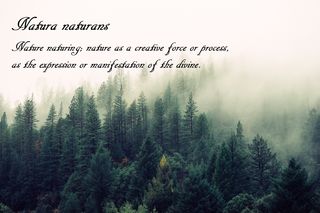
In January this year the scientists responsible for the ‘doomsday clock’ moved it 30 seconds closer to midnight – the symbolic point of total catastrophe for humanity and the planet. The minute-hand now hovers perilously at two minutes to midnight, the closest point it has ever been (matching the previous peak of 1953, the height of the Cold War). This judgement is a reflection of the multiple threats we face as a species – the uppermost and most urgent being the twin spectres of nuclear war and climate change.
The former has loomed over humanity like an existential sword of Damocles for decades. But the latter emergency has only become apparent relatively recently – to the extent that some people and powers still deny that it is a problem. But the scientific consensus is clear, and very alarming. It has coalesced around the view that unless we can limit global warming this century to 2°C, then we are in civilisation-threatening trouble. And doing so will be an unprecedented challenge like humankind has never faced: even if we somehow miraculously reduce our carbon footprint to zero tomorrow, we may have already ‘locked in’ 1.5°C of warming.
We’ll need many things to help combat this emergency. This includes technological innovation of course - new scientific and engineering advances that can wean us off fossil fuels, and instead harness renewable energies. It also includes new patterns of working and living, whereby we are encouraged and empowered to live in more sustainable and environmentally-friendly ways. But we'll also need something both subtler and yet perhaps more profound than these revolutions: a new vision of nature itself.
A new perspective
Over the past few centuries, certain damaging perspectives on nature have come to dominate the public discourse, much to the detriment of the environment. The first is the view, which can be traced back at least as far as the bible, that humankind has ‘dominion’ over the earth, i.e., ‘rules over’ the planet in some consequential sense. This in itself is not necessarily problematic; it is conceivable that this perspective could be aligned with an ethos of responsible and careful ‘stewardship,’ as indeed some cultures and people have cultivated1. But the issue is that this ‘dominion’ perspective has been widely allied with a mechanistic view of nature that views it as devoid of any intrinsic worth, identity, and purpose beyond its instrumental value to human beings.
The result is a dominant ideology which regards the natural world primarily as a ‘resource’ that humans are free to plunder at their will. This perspective has surely played a pivotal role in our planetary emergency. Maybe the planet would still be in trouble if a more benign view of nature had dominated, but I doubt it would be to the same extent. In that respect, while much damage has already been done, I still believe we could redeem ourselves and set our relationship on a better path if we could develop and promote an alternative vision.
Many such visions can be found across human history and cultures. The dominant perspective above is by no means the only one that humans have developed. I’ve recently encountered a wealth of these through my research, which focuses on ‘untranslatable’ words, ones relating to wellbeing specifically (being a researcher in positive psychology). The result is an evolving ‘positive lexicography’, as I explore in two new books (please see bio for details). Such words are significant, as they represent ideas and practices which have been overlooked or underappreciated in one’s own culture or time period, but have been recognised by another culture or era. These include visions of nature which have long been neglected in favour of the dominant ideology outlined above. A case in point is the idea of natura naturans.
Natura naturans
Einstein was once asked whether he believed in God, and replied ‘I believe in Spinoza’s God, who reveals himself in the orderly harmony of what exists, not in a God who concerns himself with the fates and actions of human beings’2. Baruch Spinoza, born in Amsterdam in 1632, was a pioneer of rationalism and helped lay the foundations for the Enlightenment. He was a controversial figure in his day – with his works placed on the Catholic Church’s List of Prohibited Books – mainly because he was accused by his critics of promulgating atheism.
However, his philosophy was more nuanced than a direct rejection of the sacred. Rather, he is now seen as one of the first advocates of a perspective known as pantheism. This is the idea that God and the cosmos are indivisible – one and the same. To explain this idea, he deployed the Latin phrase natura naturans – ‘nature naturing’. God is the dynamic process and manifestation of creation itself, nature unfurling in all its wonder.
Since then, many thinkers have aligned themselves with a pantheistic perspective, even if many have dispensed with the notion of a theistic deity. In this modern sense of the term, the cosmos itself is regarded as sacred or precious in some way, as per Einstein’s reference to ‘the orderly harmony of what exists’. Many contemporary scientists and philosophers share this view. They may not believe in God per se, but the awe the universe inspires in them does appear to come close to religious devotion. For instance, the prominent atheist Richard Dawkins has spoken approvingly of ‘Einstein’s God’, which he defines as ‘the laws of nature which are so deeply mysterious that they inspire a feeling of reverence’3.
This vision of nature as sacred – which seems to have the potential to appeal to all people, religious and non-religious alike – may be just what is needed if we are to preserve this planet, our one and only home in the cosmos.
References
[1] Suagee, D. B. (1996). Tribal Voices in Historic Preservation: Sacred Landscapes, Cross-Cultural Bridges, and Common Ground. Vt. L. Rev., 21, 145.
[2] R. W. Clark, Einstein: The Life and Times (New York: Avon Books, 1971), at 502.
[3] www.bbc.co.uk/religion/religions/atheism/people/dawkins.shtml




